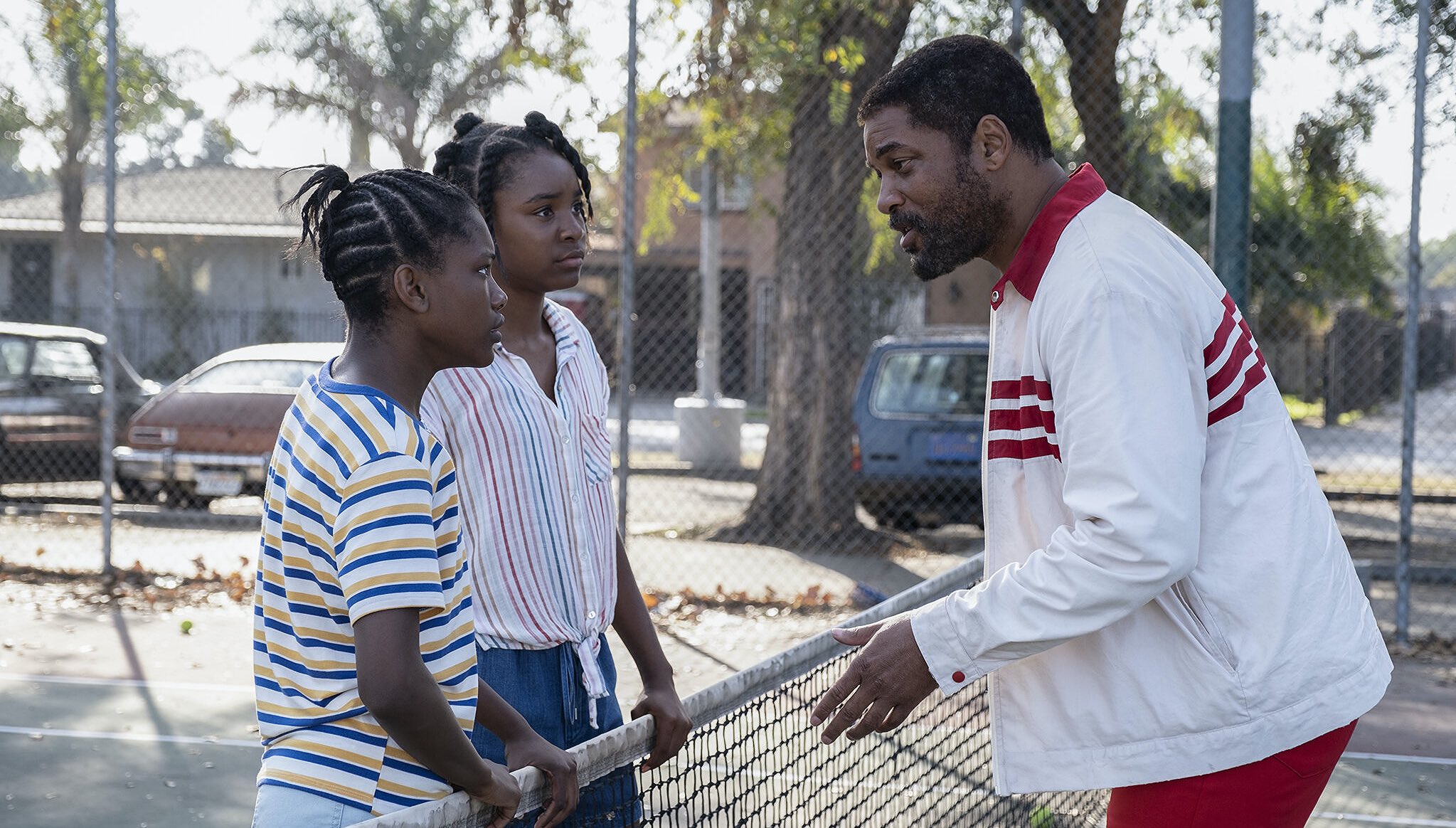Perhaps the most commendable video ever from A. Schwarzenegger…unfettered humanism…hats off.
Day: March 18, 2022
Simply Not True
I’ll be reviewing Adam and Aaron Née ‘s The Lost City (Paramount, 3.25) sometime tomorrow (Saturday, 3.19), but this paragraph from Peter Debruge’s 3.12 Variety review conveys highly misleading and unreliable opinions. I don’t just disagree with the first and last sentences — I screamed out loud when I read them. I only saw the film last night so…
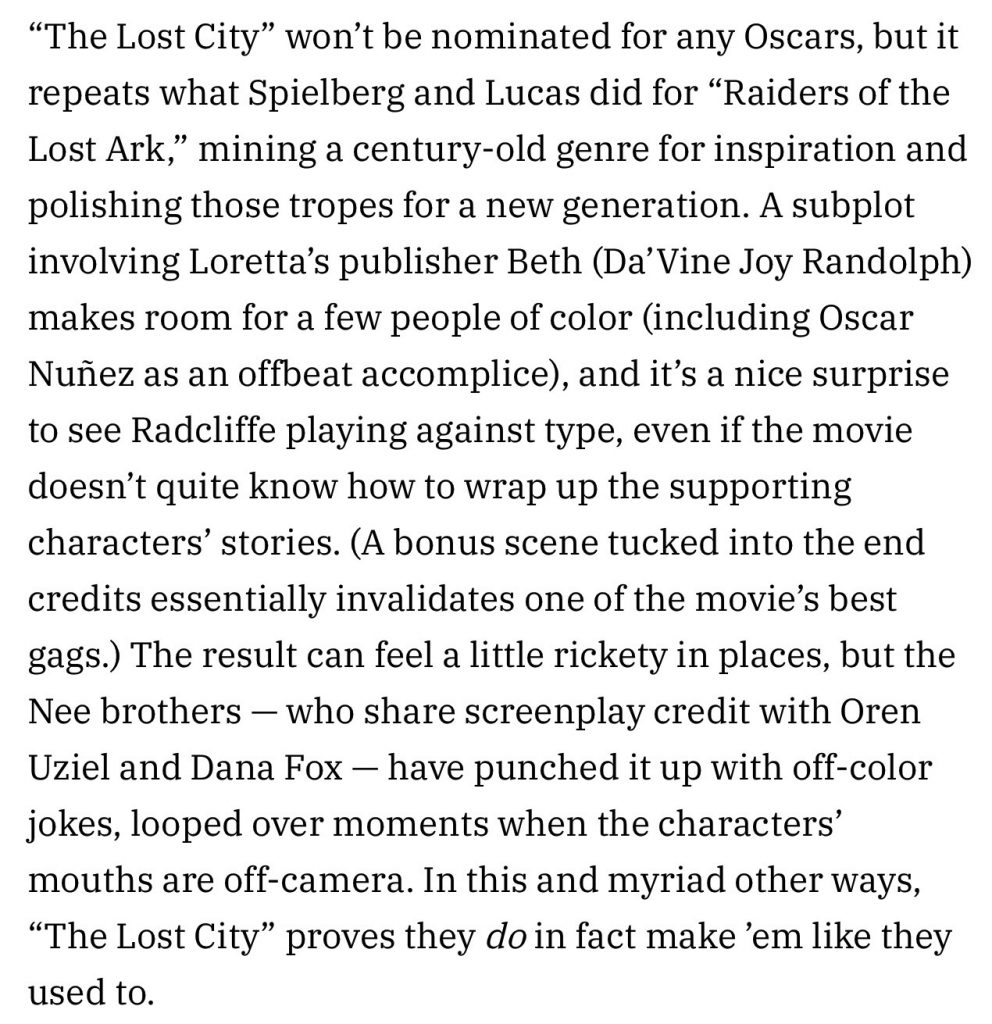
What’s Happened to the N.Y. Times?
The N.Y. Times, formerly the “paper of record” and a bastion of woke Stalinism for the last five or six years (certainly as far as the usual woke-kneejerk issues are concerned), has actually posted an editorial that warns of the dangers of cancel culture, pushed by left-progressive absolutists since the new Robespierre terror began.
The editorial is titled “America Has a Free Speech Problem.” The authors didn’t have the courage to dump this problem on the lap of the radical left; they’ve used the old “both sides” tactic to claim the right is just as bad in this regard. The Trumpist-nutter righties are evil, of course, but 95% of the scolding and repression these days is coming from the left.
HE regulars are hereby advised to read the comments.

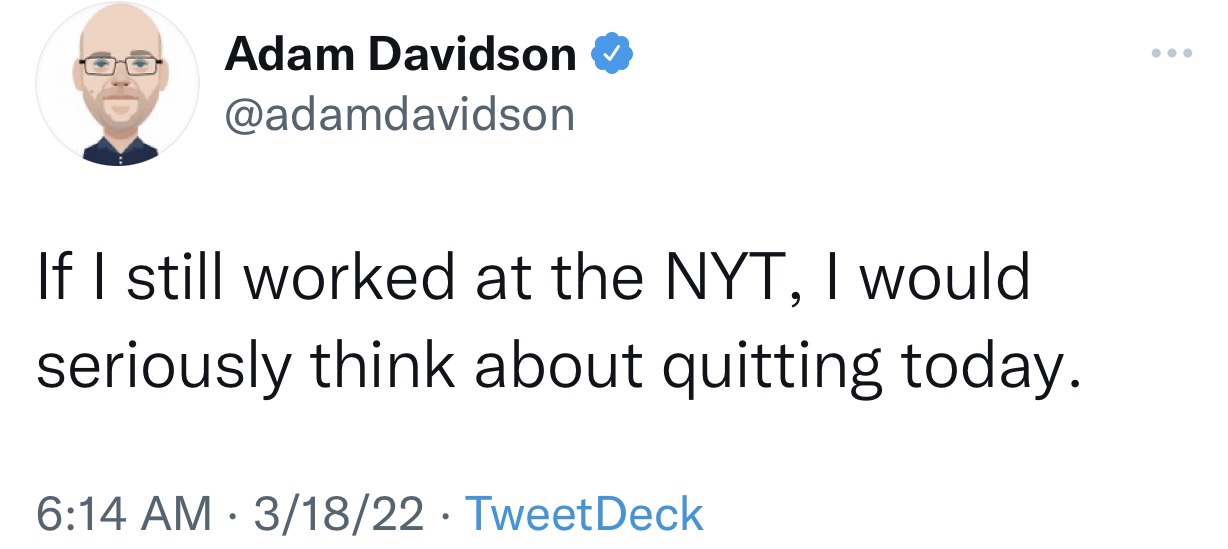
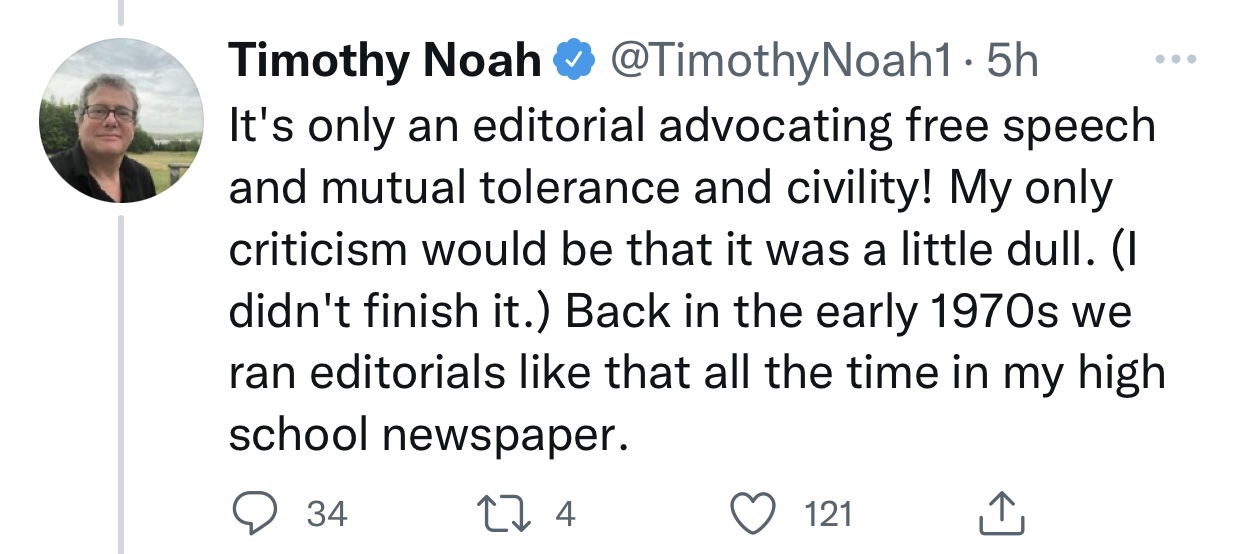
The Unfairness of This
It’s not cool and not fair for Lia Thomas, the 22 year-old transgender swimmer who yesterday won the women’s 500-yard freestyle race and thereby became the first transgender woman to win an NCAA swimming championship, to compete against women who were born that way.
Thomas’s natural athletic superiority — built like a dude, taller, stronger, big shoulders — clearly give her an advantage over female competitors. The NCAA honchos who paved the way for Thomas and others like her to compete are helping to destroy women’s sports. It’s really not right.
Thomas is like the robot pitcher in that 1960 Twilight Zone episode, “The Mighty Casey.” Imagine if a race of human-resembling aliens with extraordinary athletic abilities had landed on earth and decided to complete in men’s sports, and started winning everything — this is what Thomas is doing.
She’s not a “woman” — she’s a dude who’s taken hormone therapy and announced that she’s trans. but still enjoys the advantage of her natural male strength.
“It means the world to be here.”
Lia Thomas spoke about swimming in the NCAA women’s championships. pic.twitter.com/aP0afVA0KE
— SportsCenter (@SportsCenter) March 18, 2022


Jen Yamato Would Like A Word, Chris
Three or four years ago it was noted that among the new crop of Academy and SAG members, “representation isn’t an important thing — it’s the only thing.”
To say that we’re living in weird, obsessive times is putting it mildly. Chris calls people who are obsessive about representation “narcissists.”
40 or 50 years hence Millennials and Zoomers will be written about in the same way that historians today write about Hollywood’s anti-Communist rightwing brigade (John Wayne, Adolph Menjou, Robert Taylor, Cecil B. DeMille, Ward Bond) who did what they could in the early to late ’50s to destroy the lives of screenwriters and directors who had flirted with Communism in the 1930s, when the general consensus was that American capitalism had failed the working class.
“What’s There To Smile About?”
I love the moment when O Lucky Man! director Lindsay Anderson swats Malcolm McDowell across the side of his head with a notebook. He’s trying to shake McDowell’s character, Mick Travis, out of despair. Anderson has asked Travis to smile, and he says “why?…there’s nothing to smile about.” I smiled myself when the swat happened. I couldn’t help it.
HE to Irish Boozers: You Don’t Get It
And I mean especially the day drinkers on St. Patrick’s Day, who prompted that Beverly Hills checkpoint thing on Santa Monica Blvd.
“King Richard” Family Values
Click here to jump past HE Sink-In
If you wanted to keep it simple, you would call King Richard a first-rate sports drama. Which it is.
If you wanted to be a little more specific, you could call it a disciplined, highly motivated sports drama by way of a family relationship film. Which it is.
And if you wanted to really get down in the weeds, you could call it an inspirational, true-life portrait of a willful, obstinate, never-say-die sports dad (Williams) who insisted that his daughters work their asses off it order to become world-class tennis superstars. Which they did.
What emerges are three films in one. A tennis-boot-camp-run-by-a-tough-dad family film. A strong-mom family film, due to the knockout performance by Aunjanue Ellis. And among the most realistic, down-in-the-trenches competitive tennis films ever made.
King Richard is not a story of good fortune changing the lives of the main protagonist(s) by way of luck or God’s grace. It’s about work and focus and devotion and absolutely no relaxing or kicking back. It’s about “if you fail to plan, you plan to fail.” It’s about “only the strong and gifted who get up early and go to bed at a reasonable hour succeed.”
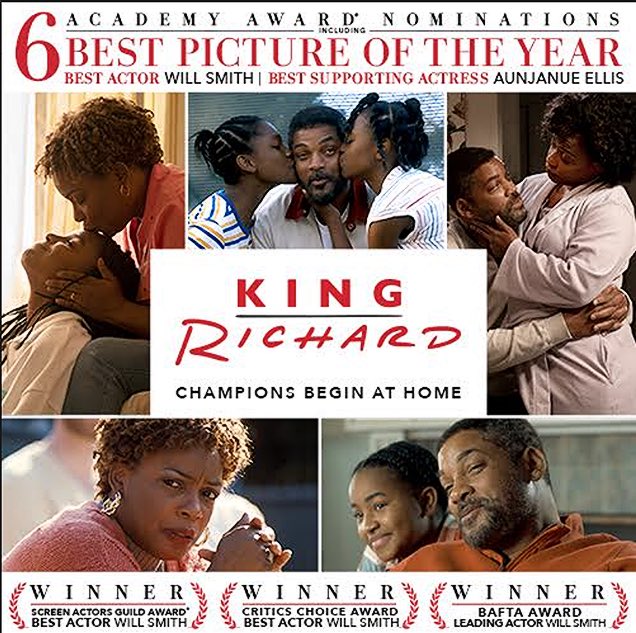
King Richard is arguably the most spiritually thrilling family film of the 21st Century. Partly because it avoids the usual usual — not so much emotions and endearing interludes and God’s good fortune, but family teamwork and discipline. It’s an adult family film without (or certainly not limited to) the usual family film bromides.
Will Smith’s performance has reminded a friend of Paul Newman’s character in The Verdict — “the same kind of slow burn in which someone whom everyone overlooks or under-values is redeemed at last. This is the best way I can see him. Characters who aren’t listened to and then finally are vindicated. That’s what makes his character compelling. Underneath it all he’s fighting the good fight.”
The single-minded Richard is partly an inspirational Malcolm X figure, partly F. Lee Ermey in Full Metal Jacket, partly an SOB with a heart of gold.
And yet much of King Richard is about other tennis coaches, managers and marketers (Tony Goldwyn‘s Paul Cohen, Jon Bernthal‘s Rick Macci, Kevin Dunn‘s Vic Braden, Dylan McDermott‘s Will Hodges) expressing annoyance with Richard’s egoism and stubbornness and general refusal to accomodate other viewpoints.
Richard may be irascible, but he’s fighting for his daughters — fighting to build their skill, fighting for their success, and also for their integrity and their roundedness as human beings. And through it all, he’s fighting to remake what is basically a racist American system of sports image-making.

